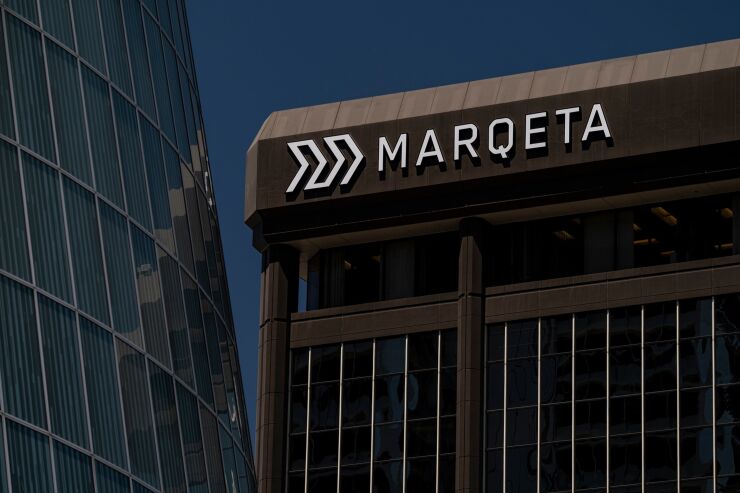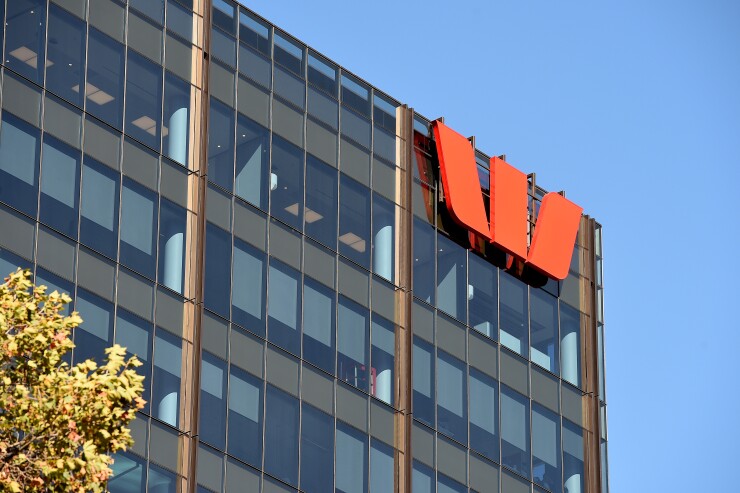
Jack Dorsey's Block laid off 931 people as part of a wider initiative to slim down the company. The staff reductions were
The staffing cuts amount to about 8% of the payment company's global workforce. As of Dec. 31, Block had 11,372 full-time employees worldwide with 2,627 full-time employees outside the U.S., according to the company's most recent 10-K filing with the Securities and Exchange Commission.
Block did not respond to requests for comment by publication time.
In a letter sent to employees, Dorsey said the cuts were focused on three areas: reducing teams that were "off strategy," parting ways with people who had or were trending toward a "below" average performance rating, and middle managers.
Almost 400 people were eliminated for strategy reasons; 460 people were eliminated for performance reasons, and 80 managers were cut, according to the letter. Nearly 200 managers were moved to individual contributor roles, the letter said.
Block also closed 748 roles it had sought to hire for with the exception of roles that progressed to the offer stage, as well as critical operation and key leadership roles, Dorsey said.
Dorsey stressed that the reduction in headcount was not aimed at hitting any specific financial targets or replacing workers with artificial intelligence. "They are specific to our needs around strategy, raising the bar and acting faster on performance, and flattening our org so we can move faster and with less abstraction," Dorsey said in the letter.
But Block is looking to hit financial targets this year. The payments company set its sights on
The rule of 40 is a software-as-a-service metric that combines the revenue growth rate with profit margins. Investors use the metric to evaluate whether a company is considered financially sound. Block in August of last year
Earlier this month, the company integrated its buy now/pay later offering
Keefe, Bruyette & Wood analysts maintained their "outperform" rating and $80 price target for Block stock on Wednesday.
"It is unclear to us if these layoffs were contemplated as part of the outlook laid out at the beginning of the year or if they represent incremental savings," according to the analysts' research note.
"In either case, we think they allow the company flexibility to invest in sales & marketing, which is a key focus area this year to help improve customer acquisition and gross profit acceleration across both segments of the business." —Joey Pizzolato

Western Union leans into artificial intelligence
Western Union has partnered with HCLTech to set up a new technology center in India to transition the money-transfer company to an
A platform operating model is "a way of organizing and working that brings together funding, people, and assets to create 'platforms' that deliver shared products and services across the enterprise," according to Boston Consulting Group.
Western Union will use two of HCLTech's AI-powered products as well as some of the global technology company's digital and cloud-based solutions to help with the transition.
The technology center will be located in Hyderabad, India, according to a Western Union release.
Companies that adopt a platform operating model have reported a two- to fourfold reduction in time to market and cost savings between 15% and 20%, according to BCG. Employee satisfaction ratings also came in at 90% or more following transitions to a platform operating model. —Joey Pizzolato

Marqeta diversification strategy adds e-marketplace
Payment card firm Marqeta signed a collaboration agreement with Upside, a digital marketplace that connects consumers with marketing incentives such as cash-back offers.
Upside has about 100,000 retailers in its network, which use Upside to attract new consumers and expand relationships with repeat shoppers.
Marqeta, supporting card technology for merchant clients, will use Upside's service in an effort to upsell marketing services to help merchants reach "top of wallet" status among their consumers.

Westpac develops panic button for scams
Westpac plans to introduce SafeBlock, a feature that enables users to block accounts and payment cards instantly through the bank's website or mobile app.
The bank attributed the product to research from Australia's National Anti-Scam Centre, which found consumers lost more than 2 billion Australian dollars in 2024, or about $1.3 billion, to scams.
"From experience, we know that scammers strike when we are at our busiest, often catching out unsuspecting customers," Carolyn McCann, Westpac's group executive of customer and corporate services, said in a release. "This is a break-glass emergency option for customers so they can stop a scam in the moment when acting fast is absolutely vital."
SafeBlock will be added in the coming months. It's the latest of a series of security products that Westpac has debuted in the past year covering payment processing and identity verification.
In the U.S., the amount of

Monzo pursues the 'dinner check' model
U.K. fintech Monzo has developed Monzo Split app to organize group expenses such as shared tides, household bills, group trips and restaurant bills.
Individual users can create what Monzo calls "splits" and invite others to join. The split members can then add expenses from different accounts and cards and send reminders. Participants can make payments for their share directly to the app from whatever account they are using.
Monzo's pitching Split as a way to automate a complicated set of transactions while avoiding awkward conversations. Payment companies for years have used the idea of
Monzo is in the midst of a U.S. expansion, a strategy that incorporates other digital finance products such as a
Investors including Alphabet's venture unit recently poured $430 million into Monzo, boosting its valuation to $5 billion and providing funds for Monzo's expansion. Monzo in 2021 scuttled an earlier application for a U.S. banking license, citing regulatory concerns.
It is expected to find a U.S.-regulated partner for its new expansion. —John Adams

dLocal, Google expand payments in Kenya
Cross-border payment firm dLocal has signed Airtel Mobile Money to power payments for Google Pay in Kenya.
Airtel Mobile Money has more than 30 million mobile money accounts and has been a major player in financial inclusion in the region, where telcos play a larger role in mobile payments than in the U.S. and Europe.
Uruguay-based

BNPL credit reporting startup Qlarifi secures pre-seed funding
London-based Qlarifi, a buy now/pay later credit reporting fintech, has secured $1.8 million in pre-seed funding.
Qlarifi's platform aggregates
The round was backed by New York-based HoneyComb Asset Management, Australia-based Carthona Capital and a selection of angel investors. —Joey Pizzolato

Google to allow in-store payments for kids
Parents and guardians in Australia, Poland, Spain, the U.S. and the U.K. will soon be able to allow their children to access digital payments and store passes such as event tickets and library cards via
Payment cards can only be added with parental consent, and parents will receive e-mails when the child makes a transaction. Parents can also add or remove payment cards or turn off access to passes via Family Link, Google's family parental controls service. The functionality is set to rollout in the "next few weeks," according to a Google release. —Joey Pizzolato





